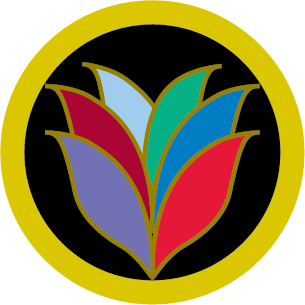Morehouse College Martin Luther King, Jr. Collection
Scope and contents
The Morehouse College Martin Luther King, Jr. Collection spans the dates 1900-1970, with the bulk of the material dated between 1944-1968. Materials include correspondence to, from and about Martin Luther King, Jr.; manuscripts of sermons, speeches, articles, reports and other literary production by King and others; organizational documents from Dexter Avenue Baptist Church, Ebenezer Baptist Church, the Montgomery Improvement Association and the Southern Christian Leadership Conference; school papers of Martin Luther King, Jr. from Morehouse College, Crozier Theological Seminary and Boston University; financial and legal documents for the King family; magazines, journals, newspapers and other printed material; photographs; and artwork.
Dates
- Creation: 1944-1968
Access Restrictions
Access is restricted to digital surrogates available in the Archives and Special Collections of the Robert W. Woodruff Library.
Restrictions on use
All documents in this collection either are protected by copyright or are the property Morehouse College, and/or the copyright holder as appropriate. Permission to consult the Morehouse College Martin Luther King, Jr. Collection does not automatically include permission to publish from the Collection. Permission to publish or quote from previously unpublished materials or from materials under copyright must first be obtained from the copyright holder. Requests for permission to publish any of Dr. King’s copyrighted speeches, sermons, books or other writings, in whole or in part, shall be addressed to Intellectual Properties Management, Inc., 449 Auburn Ave., Atlanta, Georgia, 30312.
Biographical note
Martin Luther King, Jr. was born Michael King, Jr. on January 15, 1929 in Atlanta, Georgia to Michael, Sr. (later Martin Luther) and Alberta King. He entered Morehouse College at age 15, where he majored in sociology and occasionally stood in for his father as minister at Ebenezer Baptist Church. He was ordained in 1948 and became associate pastor. That same year King began study at Crozer Theological Seminary in Chester, Pennsylvania. King continued his education at Boston University, where he studied with theologian Howard Thurman and earned a doctorate in Systematic Theology in 1955. In 1953 King married Coretta Scott and moved to Montgomery, Alabama to serve as minister at Dexter Avenue Baptist Church.
King rose to national prominence as one of the leaders of the Montgomery Bus Boycott (1955-1956). He served as president of the Montgomery Improvement Association (1955-1957) and the Southern Christian Leadership Conference (1957-1968). The bus boycott was the subject of King’s first book Stride Toward Freedom (1958); while on a national speaking tour soon after, King was stabbed by a mentally-disturbed assailant in Harlem. After his recovery King traveled to India to study the life and philosophy of Mohandas Gandhi. In 1959 the King family relocated to Atlanta, where King continued as SCLC president and became co-pastor at Ebenezer Baptist Church.
During the 1960s King achieved international fame. He published a total of five books, but became best known for his thoughtful essay “Letter from Birmingham City Jail” (1963), and his fiery oratory, exemplified by his speech given at the March on Washington (1964) known as “I Have a Dream”. In 1964 he appeared on the cover of TimeT magazine as its “Man of the Year” and he was awarded the Nobel Peace Prize. King continued to protest injustices against African-Americans, but expanded the scope of the SCLC and his own philosophy to include the poor of all races and opposition to the war in Vietnam. On April 4, 1968, while in Memphis, Tennessee to support a union strike, King was shot and killed.
Extent
43 Linear feet
Language of Materials
English
Arrangement
This collection is arranged into fourteen series.
1.1 Correspondence: General: A-D;
1.1 Correspondence: General: E-K;
1.1 Correspondence: General: L-R;
1.1 Correspondence: General: S-Z;
1.2 Correspondence: Letters, Telegrams and Cards Received After Stabbing in Harlem;
1.3 Correspondence: Condolences and Letters Received After Assassination;
1.4 Correspondence: Unidentified;
2. Writings by Martin Luther King, Jr.;
3. Writings by Others;
4. Research Notes;
5. Education Materials;
6. Southern Christian Leadership Conference Organizational Records;
7. Montgomery Improvement Association Organizational Records;
8. Dexter Avenue Baptist Church Organizational Records;
9. Ebenezer Baptist Church Organizational Records;
10. Financial Records;
11. Legal Materials;
12. Printed Materials;
13. Photographs;
14. Artwork;
15. Memorabilia
Acquisition Information
The Morehouse College Martin Luther King, Jr. Collection was acquired by the City of Atlanta from Sotheby's Action House in 2006 and transferred to Morehouse College. The collection was deposited with the Robert W. Woodruff Library by Morehouse College on September 14, 2006.
- Title
- Morehouse College Martin Luther King, Jr. Collection
- Status
- Completed
- Description rules
- Describing Archives: A Content Standard
- Language of description
- Undetermined
- Script of description
- Code for undetermined script
Repository Details
Part of the Robert W. Woodruff Library of the Atlanta University Center, Inc. Repository
